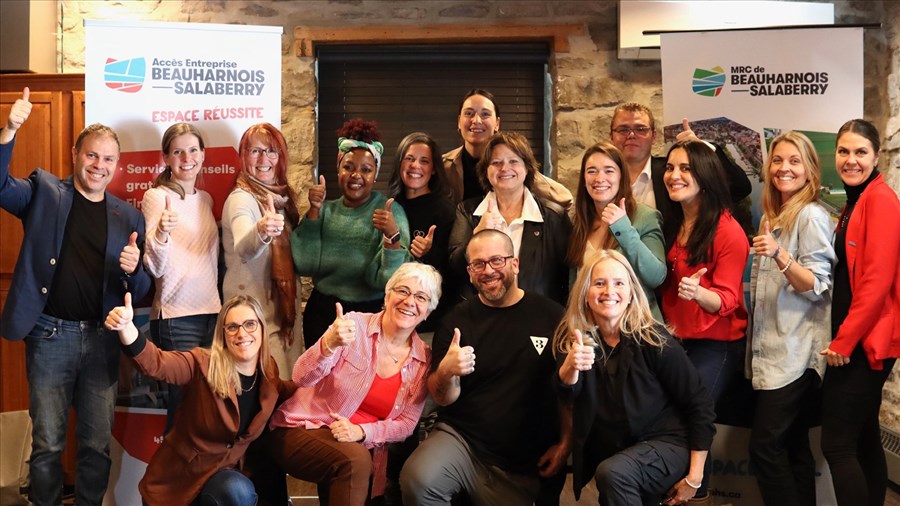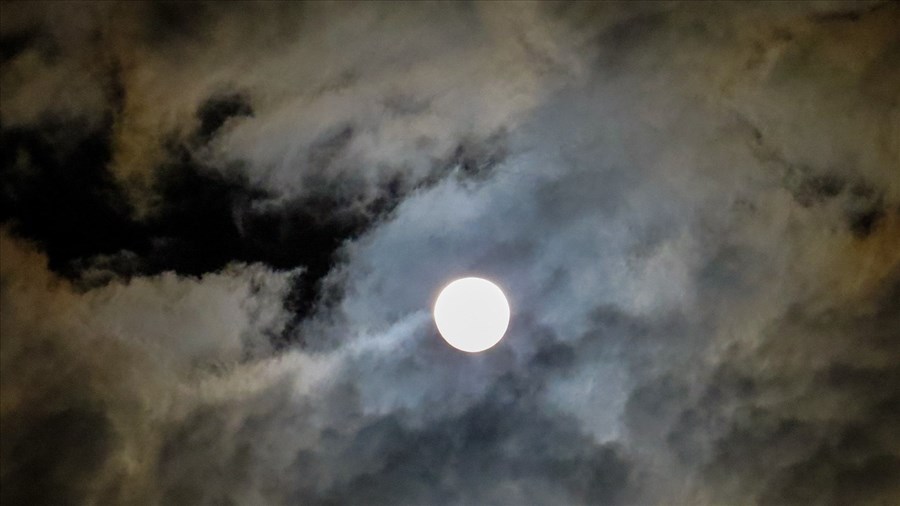In favor of protecting this natural environment
Camping Koa: MARE and Mères au Front submit memoir
For the Mouvement d'Action Régional en Environnement (MARE) and the Mères au Front Vaudreuil-Soulanges organization, it is imperative to protect the forest territory of the former Camping Koa site, which is to be redeveloped. The two citizens' groups have submitted briefs to elected officials to make them aware of this possibility.
In its brief, MARE states that it is asking elected officials at all levels of government to take scientific advice into account, and to stop trying to pursue economic development in isolation, without taking into account the reality of the environmental crises we are facing.
“It also means really including the measures required by the reality of the climate and biodiversity crises in land-use planning, rather than continuing to spread the urban environment over the region's last remaining natural spaces. Solutions exist and are being put forward by experts from all fields,” reads the five-page document.
In addition to citing the findings of experts, the brief outlines the recent evolution of government orientations in land use planning, and dwells on the new regime for disguised expropriation, Bill 39.
The MARE makes three recommendations to ensure the protection of Coteau-du-Lac's natural environments:
1) Characterize all of its natural and semi-natural environments in order to establish an effective conservation and development strategy.
2) Establish a conservation target representative of the different types of at least 30% of the territory, and a restoration plan for 30% of degraded ecosystems.
3) Aim for zero land artificialisation, and thus halt the loss of natural environments and farmland.
These suggestions are in line with those put forward by the expert groups cited in the brief, as well as with the new Orientations gouvernementales en aménagement du territoire (OGAT). They are explained in greater detail in the brief submitted by MARE.
“Agricultural land is precious and must be protected, as must the natural environments associated with it. These natural environments play a role in regulating natural processes. They enable us to adapt better and combat global warming. The urgency of the challenges we face today calls for an immediate transformation of our vision of what is economically justifiable; a status quo would necessarily imply far greater future costs (restoration of degraded natural environments, stormwater management, combating heat islands, health problems linked to poor air quality, flooding, forest fires, adverse effects on groundwater, etc.) than those associated with the conservation of natural areas. The integral conservation of the 4 Seasons Nature Park woodland and the site of the former KOA campground is important for combating and adapting to climate change, as well as protecting and restoring the biodiversity of ecosystems on the territory of Greater Montreal, the Vaudreuil-Soulanges MRC and the city of Coteau-du- Lac,” the document concludes.
In closing, MARE concludes with this: “Universal access to natural environments is of great importance to the well-being of a community. The nature park is a natural “amenity” that allows urban citizens to reconnect with nature and stimulate physical activity. With a population that now exceeds 7,000, an enhancement and expansion of the 4-season nature park is warranted. It's time to respect our commitments to future generations (remember La chaise des générations) and our resolve to do everything in our power to reduce the impact of climate change. The city's slogan “Coteau-du-Lac, A natural choice”: let's prove it!”
Four recommendations from Mères au Front
Mères au Front, an organization deeply involved in Vaudreuil-Soulanges, has also made its voice and arguments heard in the matter of the redevelopment of Camping Koa.
In its brief, the organization poses the following question to the municipal council: How can the destruction of a wooded area to build a residential neighborhood be considered the best decision for the future of Coteau-du-Lac's children? drawing a parallel with the Generations Chair made by students at Saint-Ignace elementary school to guide elected officials in their future decisions. The accessory was presented to the municipal council by Mères au Front a year ago.
According to Mères au Front, destroying a woodland increases the vulnerability of the city and its citizens to the impacts of the climate crisis: droughts, floods, forest fires, lack of drinking water, extreme weather events, lower agricultural yields and numerous impacts on human health. Worse still, we are depriving ourselves of the easiest and most affordable solution: the ecological services provided by natural environments.
Trees absorb CO2 and pollutants. They eliminate them and store them to release oxygen into the air. “The woodland in question is located between Highway 20 and Route 338, where an imposing number of vehicles enter the air every day, releasing these notorious GHGs. Not to mention the number of trucks entering and leaving the industrial park. How much woodland is left in Coteau-du-Lac to combat these emissions? There are no forests too small to be worth saving, given the immense needs.”
The organization points out that trees protect against heat. “Ten years ago, we had an average of 3 days/year over 32 degrees C. This year, at the end of July, there were fifteen such hot days. Public health authorities are concerned about the impact on the health of the most vulnerable. Cities are being asked to adapt to these realities by, among other things, providing wooded areas where shade considerably reduces the heat. We're asking cities to plant trees, not cut them down.”
Trees also protect the soil, we explain. Their roots facilitate the infiltration of water into the ground, right up to the water table. More and more extreme weather events, with torrential downpours in just a few hours, are causing damage to both municipal and residential infrastructures.
Forests also have quantifiable and measurable health benefits, we add. “Many health professionals recommend walking in the woods as a remedy for stress, anxiety and cardiovascular disease. This woodland would make it possible to expand the adjacent Quatre Saisons park, thereby increasing the area of trails available to families in Coteau-du-Lac and the surrounding area. Now let's talk costs. How much do and will the negative impacts of the climate crisis cost in health costs, lost crops, flood damage, forest fire fighting, adaptation measures of all kinds, compared to the current market value of a woodlot?”
At the Coteau-du-Lac municipal council meeting on July 9, several councillors mentioned that they had given their support to the present PPU for fear of legal action from the promoter. However, the new sections 245 and 245.5 of the Act respecting land use planning and development provide municipalities with new safeguards against recourse by private developers.
“This is precisely what the legislator has done with these new provisions, to enable municipalities to comply with their obligations and responsibilities in terms of protecting the environment, wetlands and waterways, without having to constantly fear recourse for disguised expropriation. ”
At the end of its brief, Mères au Front makes four recommendations:
- That the city reconsider the option of acquiring the wooded portion of the aforementioned land;
- That the city join forces with partners such as Nature Québec to share the costs of acquiring the aforementioned woodland;
- That the city submit the final decision on the fate of the aforementioned woodland to the population by means of a referendum;
- That the city provide citizens with all necessary information, including analyses of the flora and fauna of said woodland, so that they can make an informed decision.
Mayor Andrée Brosseau undertook to submit the two briefs to the municipal council for consideration.







